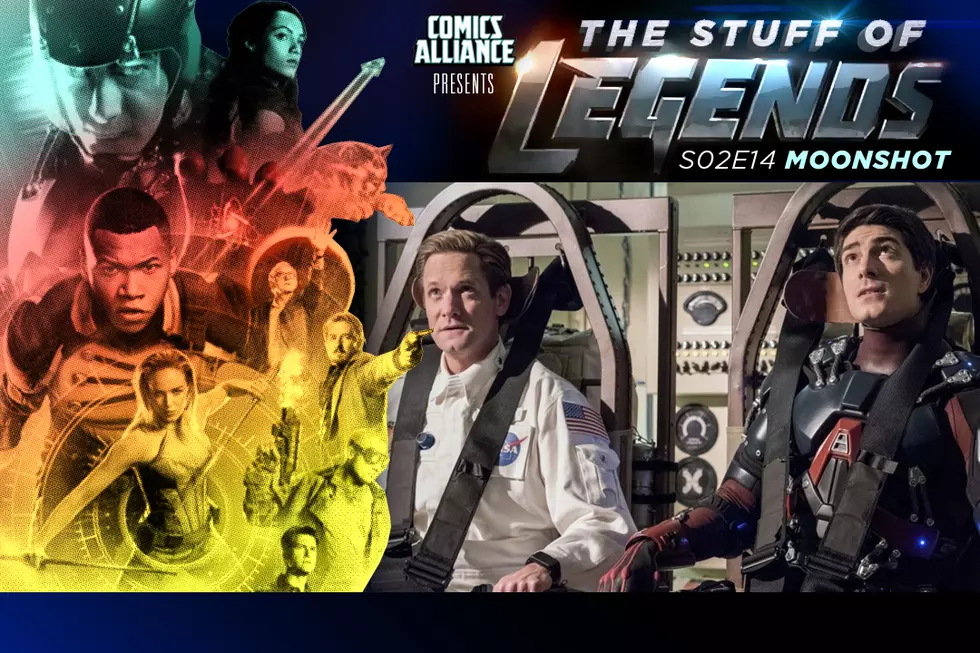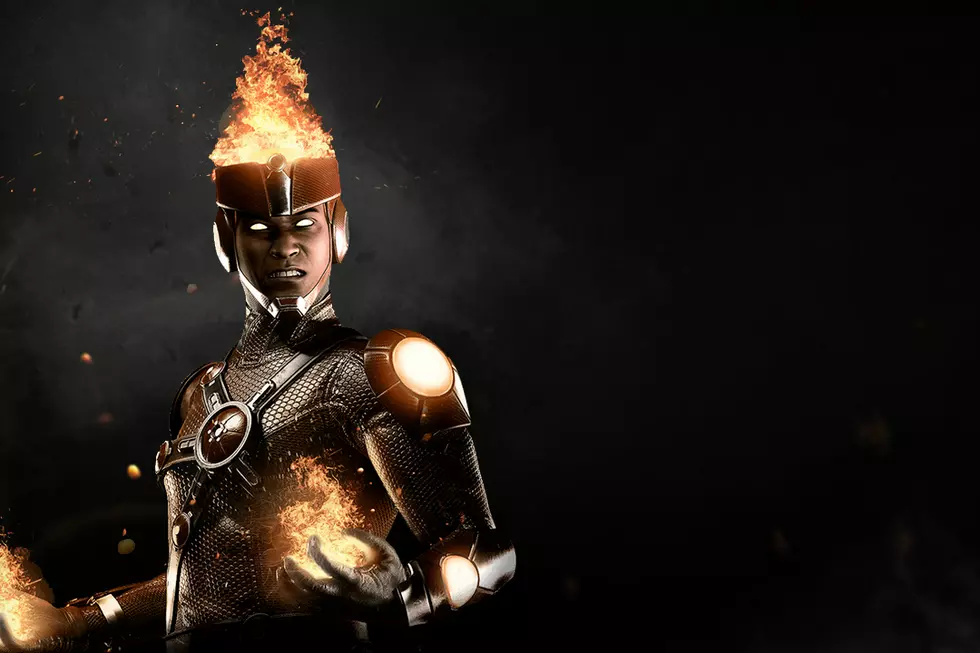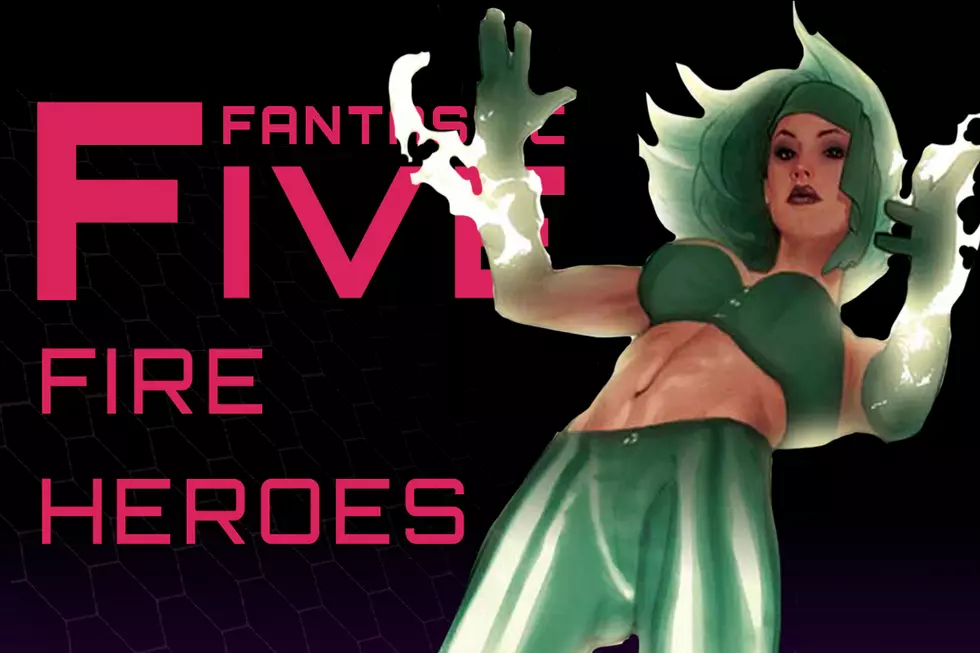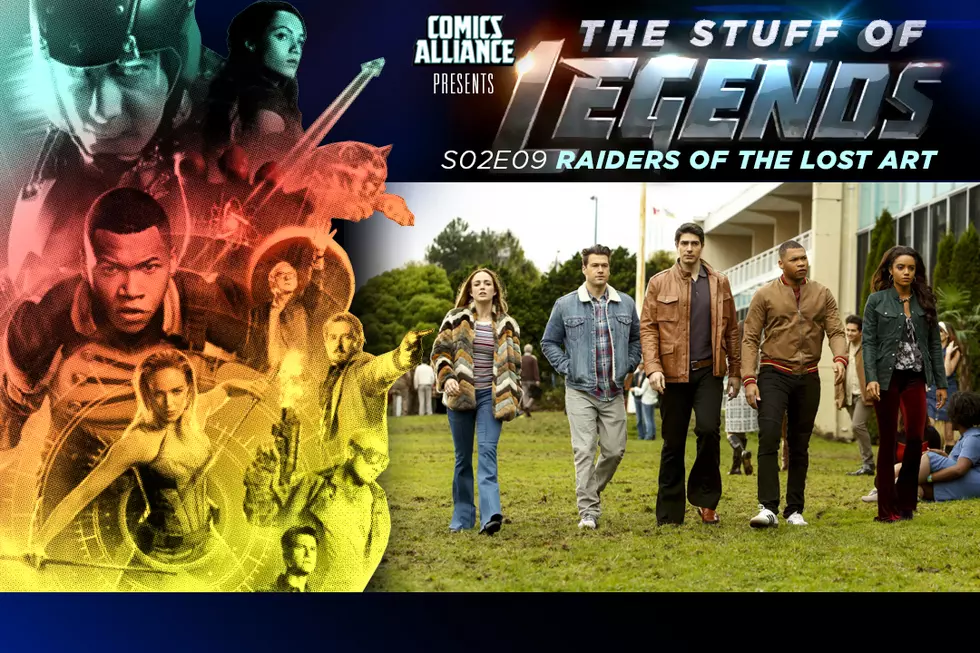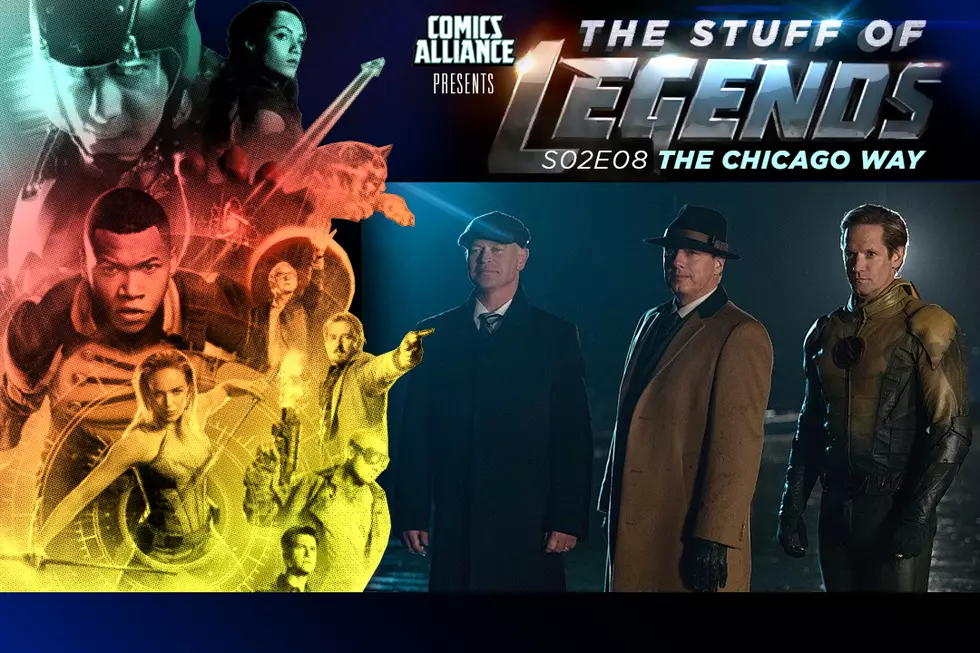
The Racial Politics of Regressive Storytelling

In this month's comic book solicitations, it's been revealed that Ray Palmer is making a return to comics as the Atom, following in the footsteps of characters like Hal Jordan and Barry Allen in what I like to call "regressive storytelling." These are stories that look to the past instead of the future, setting things back to the way they were rather than progressing them to what they should be next, rendering huge swaths of their fictional universe irrelevant because they didn't star the One True Version of a character.
In a lot of ways, it's an unavoidable aspect of the way comics work, in that most creators started out as (and presumably still are) fans first. And for fans, the One True Version of any given character is the one that made the biggest impact on them when they were growing up, be it Cary Bates' Flash or Adam West's Batman, and by and large, the fan mentality doesn't lend itself to innovation. Instead, it prompts the same desire that leads to fan-fiction: They want to play with their favorite toys, and if the universe they're working with doesn't allow that, then it's the universe that has to change, not them.
"The Good Old Days" have become a driving force in the comics industry in particular and DC Specifically (and Geoff Johns even more specifically, as DC's Creative Director who is personally responsible for regressing Green Lantern, Flash, the Legion of Super-Heroes, Hawkman, Aquaman and others), and it's all built around a desire to recapture a feeling these creators got when they were kids. And that's not necessarily a bad thing -- I'm certainly not an exception to fan culture, and there are stories that push my "Oh hey, I remember that" buttons as hard as anyone else's -- except that the form it takes ignores that much of what made Jack Kirby or Cary Bates or Alan Moore or Frank Miller so exciting wasn't what they were doing, but that they were doing things that hadn't been done before. Instead, we're in an industry right now that wants to constantly reset itself, running on nostalgia rather than innovation, moving backwards instead of moving forwards, and while I complain about it both often and at length, it seems to be what the majority of comics readers want, no matter how wrong-headed I think it is.
But there's an unintentional side-effect to all this regression that often goes ignored: The piece-by-piece white-washing of the DC Universe.Before I go any further, I want to make it absolutely clear that I'm not suggesting that creators like Geoff Johns are racist, or that their stories are consciously motivated by racism in any way. I don't think that factors into what they're doing at all; the motivation is one of nostalgia and resistance to change, not race. I don't think the racial consequences of what they're doing even cross their minds, which is an entirely different, and in some ways, more insidious problem.
 But it's there, and it's becoming increasingly hard to ignore. And it's particularly prevalent in DC Comics because no other company so relies on legacy characters. There's no other company that has the idea of super-heroic roles being passed from one generation to the next quite so hardwired into it. They've been doing it since 1956, when Barry Allen took the place of Jay Garrick and ushered in the Silver Age. And because most of their popular and enduring characters were created in the early days -- the '30s, '40s and '50s, when the only minority characters were outright racist caricatures like Ebony White and Chop-Chop -- they were white.
But it's there, and it's becoming increasingly hard to ignore. And it's particularly prevalent in DC Comics because no other company so relies on legacy characters. There's no other company that has the idea of super-heroic roles being passed from one generation to the next quite so hardwired into it. They've been doing it since 1956, when Barry Allen took the place of Jay Garrick and ushered in the Silver Age. And because most of their popular and enduring characters were created in the early days -- the '30s, '40s and '50s, when the only minority characters were outright racist caricatures like Ebony White and Chop-Chop -- they were white.
As comics progressed, however, more legacy characters were created. Some, like John Stewart, were introduced explicitly to challenge notions of race, while later ones -- Jason Rusch (Firestorm), Jaime Reyes (Blue Beetle), and even going back to Kimiyo Hoshi (Dr. Light) and Yolanda Montez (Wildcat) -- were more reflections of changing standards in regards to the media's acceptance of non-white characters.
But now, the idea of a legacy character is being totally subverted. They're not roles that are passed down anymore, they're roles that are passed back up.
And much of the time -- not always, but enough that it's more than notable -- they're being passed back from a non-white character to an Aryan ideal. Jason Rusch is still part of Firestorm, but it's back to being Ronnie Raymond's Caucasian body. Kimiyo Hoshi is still Dr. Light, but that name's been permanently soured by "Identity Crisis" and the fact that James Robinson had the original Dr. Light threaten to rape her children on the Justice League Satellite. Even the regressions of ostensibly white characters often have racially charged consequences: Wally West's interracial marriage to Linda Park has been sidelined in favor of on-the-go suburbanites Barry Allen and Iris West, and Kyle Rayner (who was created as an Irish-American but later "revealed" to be the son of a Mexican-American CIA agent) has suffered the strange fate-worse-than-death of a fictional character who gets demoted from a starring role to a supporting one. He's still a Green Lantern, but he's not the Green Lantern.
Even stranger -- and oftentimes worse -- are the storytelling gymnastics that creators have to go through to justify their regressions, which, again, are things that are clearly done without thinking of the consequences. Take this scene from Johns's "Infinite Crisis":

By itself, in the isolated, insular world of comics, this makes perfect sense: If the characters of the '30s and '40s existed on a separate Earth from the characters of the '50s, then it makes perfect sense that characters created later would have existed on still another Earth. But the subtext here -- no matter how unintentional it is -- is that these newer characters don't belong in the DC Universe. They need to be somewhere else while the real characters, the ones who, by coincidence, aren't black or Italian or have Latino parents, have their real adventures.
It's the unintentional building of a cosmic-scale meta-textual ghetto.
Another example can be found on Johns's "deboot" of the "Legion of Super-Heroes." It's a franchise I'm passionate about in the exact same fannish way that I mentioned above. Even though I came to the series later and have a huge appreciation for the Silver Age stories, and even though I really enjoy what Johns did with them, "my" Legion is still the first one I read, the post-Zero Hour "reboot" Legion.
Admittedly, the reboot lost non-white characters like Dawnstar, Tyroc and Invisible Kid II (the latter eventually returned, albeit in the same sort of supporting character role that Kyle Rayner's stuck in now), but at the very least, it brought in new characters like Kid Quantum I and II, Gear and XS. Even the "Threeboot" Legion had some diversity to it with Star Boy and Karate Kid.
The current Legion, however, doesn't have a whole lot of non-white faces:

Keep in mind, this is meant to represent the 31st Century, when the entire Earth is united and that draws on an entire galaxy. But racially speaking, there's not a whole lot of diversity: There's Colossal Boy (revealed to be Jewish in one of the DC Holiday Specials from thirty years ago) and Dawnstar (a Native American from Space with vague "tracking" powers that skirt the line of stereotype), but to paraphrase Denny O'Neil, this Legion's got green skins and blue skins, but what about...

But you can't really even blame the creators entirely, because it's reinforced by the fans. I'm sure a lot of it comes from the fact that the stories are often good stories (as I said, the Legion stuff isn't necessarily what I want the Legion to be, but it's still very enjoyable), but there's an underlying resistance to change that seems to come out in a far more ugly manner when race is involved. Again, I would certainly hope that the majority of comics fans aren't racist, but I heard John Stewart referred to as "Black Lantern" years before Nekron started sending out rings, and I've heard enough people refer to Jason Rusch as "Blackstorm" to know that a lot of them don't understand that casual racism is still racism.
Which is one of the things that's so galling about the regression from Ryan Choi to Ray Palmer. It's been a running gag among my friends that in comics, only white Americans ever find meteors, get splashed with chemicals or get visited by spacemen, everyone else (from Jack O'Lantern to Black Bison to the Gaucho to Apache Chief to Samurai and so on) has to have a power that relates to their race or their country -- specifically, the broad stereotypes drawn from white Americans' perception of their race or country. It's almost inescapable, and it reinforces the idea that non-white characters are defined solely by their ethnic differences.
But Ryan Choi was a character that actually had a character, and was one of the few Chinese-American characters in comics that didn't have powers relating to Kung Fu dragons. He was just a guy with super-powers that was filling a role that nobody had bothered to do anything with in years.
And now he's been shoved into limbo so that Ray Palmer can come back, reduced to a gentrified footnote so that the DC Universe can a little bit more like it did in 1978.
More From ComicsAlliance

